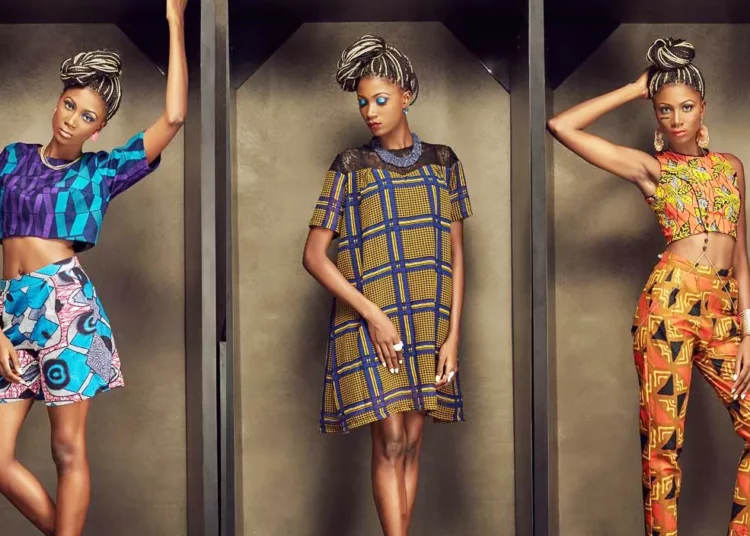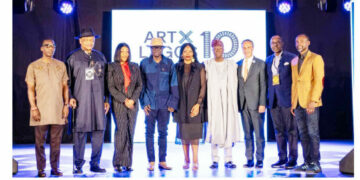Ukrainian Fashion expert, Masha Bekh, has said that digital fashion holds several opportunities for Nigerians and labourers in the fashion industry.
The Italy-based designer, fashion consultant and founder of Bekh It, disclosed this at the just concluded CAVIC Creativity and Technology Festival held in Abuja, November 7 to 9.
Addressing the fear of imminent massive job losses that will accompany the transition to digital fashion, Bekh said rather than strip people of their jobs, AI will transform jobs for the better.
“It is about developing new skills in the digital world. This means that you have to know how to use the programmes, which would make you relevant to the times, and give you the freedom to work remotely with different fashion brands across the world”.
With the transition to digital fashion, Bekh said, there is current need for the skills of fashion industry’s labourers’ (those versed in the art of cutting, patterning, tailoring, weaving etc.) in the digital world, which at present, digital fashion platforms and labels are in dire need of.
Labourers, she stressed needn’t have formal educational, as there are digital courses available to help them acquire the computer skills requisite to transfer their skillsets online.
“The digital world is exactly for fashion workers who lack conventional education. Right now, it is really about the skills and your practice than a teacher telling you how to do things, because no one knows right now how it should be done, as we are all exploring new tools.
“Thus, even if you are in Nigeria and didn’t have the opportunity of getting a formal education, you can easily be relevant in the industry, or have better skills than someone who got theirs from a school. This is because AI is progressing a lot, day by day. So, you have to keep up with the news. That is how you become relevant.”
Digital Fashion is lauded for its potential to ensure effective and sustainable production for the world’s second largest environmental pollutant, the fashion industry. Digital Fashion reduces fashion industry’s carbon emissions from 10.75kg to 0.312kg through the enabling of shopping, designing, tailoring, fittings, styling, prototyping and market survey online, thereby saving energy and costs arising from the production of fashion pieces that would ‘tank’ in the market.
However, digital fashion isn’t devoid of its own carbon footprint, resulting from the high amounts of energy required to code its processors. Bekh, however, believes that with AI’s progressive growth, the solution isn’t far behind.
“Everyone wants to get involved with AI, and wants AI to be sustainable. AI is about writing and rewriting codes, so, it needs space for the rewritings, and that means more processors to do so. To create digital fashion, one needs processors, and this demands energy. While there is no solution at the moment, tech professionals are working towards reduced code rewrites and consumes less energy”.
As a nascent Digital Fashion industry, Nigerian designers, the upcycle consultant, should maintain their bold use of colours, patterns, prints steeped in its rich cultures, but expand on their computer skills, and upcycling fashion to gain leverage in the digital fashion space.
“If you are just a fashion designer who sketches, you are presently not professionally relevant. But if you are a designer who knows how to design a product and create 3D simulations of it on the computer, you are relevant”
“I am really amazed how Nigerians use patterns. I like how they honour and take pride in your culture, with the men wearing hats, and the women often dressed in traditional clothes. I think it’s something you should maintain, while finding modern forms for more dynamic styles.
“Nigerians also have the skills to work in upcycling fashion, and I think as a younger/entry level creative, this is a good place to start, because it is niche-driven, with lesser competition for now. So, if you are smart, you can be a part of this new world, and be very successful,” concluded Bekh.





